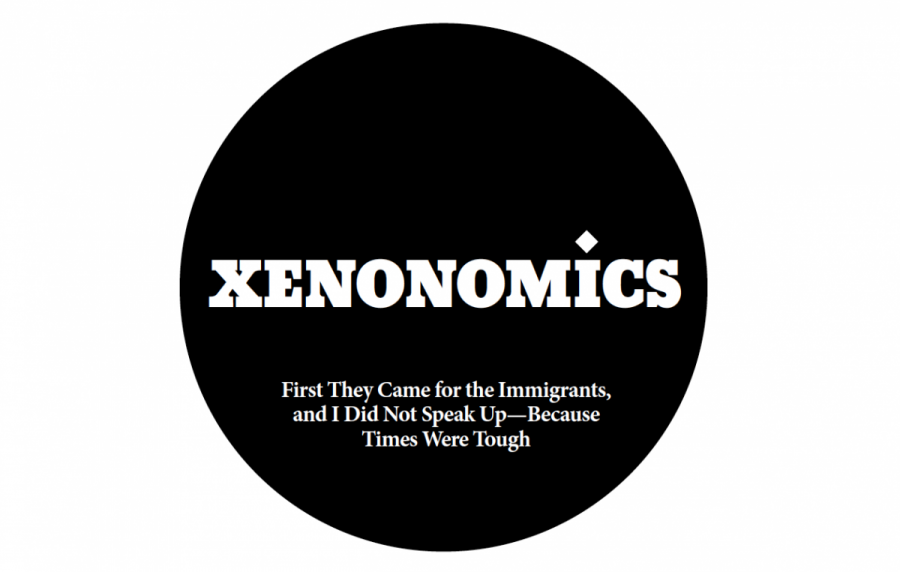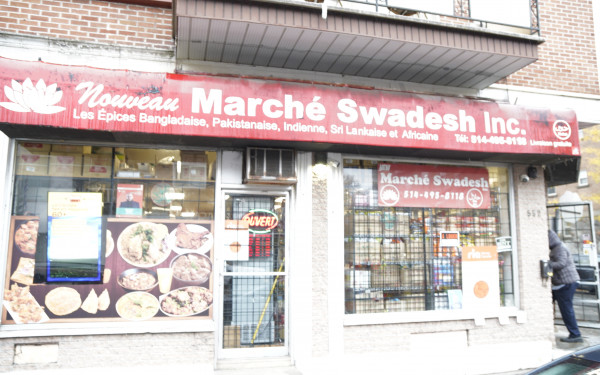Xenonomics
First They Came for the Immigrants, and I Did Not Speak Up—Because Times Were Tough
This spring, Quebecers stood shoulder to shoulder in marches against tuition increases and the privatization of their institutions.
Then, the entire province watched together as a private inquiry into government corruption was officially put in motion.
The population united over the feeling that their voices, together, could impact their society. They were in a state of banding together against a system moving from serving the interests of the people to serving the interests of the powerful.
Though there were many who disagreed on specific viewpoints, it was always an empowered dialogue where discussions with each other, friends and colleagues, was how we figured out where we stood.
Whatever it was, it wasn’t about personal identities dictating what people’s default political alliances would be.
As the elections heated up during the latter half of the summer, the process of people collectively negotiating what they were going to demand from their politicians got swapped for politicians telling the people what the issues were going to be.
Splashed across newspapers and the airwaves were: separatism, language and religion. We followed the birdie.
Corruption and tuition were lose-lose topics for Quebec politicians. Issues important before the election were largely avoided in favor of new talking points, conjured up out of a need to draw lines in the sand, which could differentiate the parties and automatically polarize the electorate.
Sound platforms pertaining to actual social progress took a backseat to tired divisions many hoped had been long buried. By reviving issues we, as a society, thought we had moved beyond, we were instantly transported to decades past and heated rhetoric with no clear end.
Some notable examples of old hurts have been the calls to expand Bill 101 and also to instate a secular charter. We are back to a political arena where promoting Québecois culture is seen as only possible through crushing the incorrigible multitude of pariahs who exist within it.
Strained economies leading to a rise in xenophobic attitudes is not a trend unique to Quebec. It’s a knee-jerk reaction around the world. Defining what we are by pointing to another group and demonizing them has been popular since society began.
Some current examples can be found in Europe’s Roma, who are routinely targeted by governments as scapegoats—Italy and France have ramped up deportation efforts in the past several years.
In Greece, economic turmoil has lead to the rise of neo-Nazi and far-right political groups, one of which is called “Golden Dawn” and sees some kind of solution to Greece’s problems in putting landmines along the Greece-Turkey border.
“Xenophobia is truly a common reaction to difficult times and parties willing to spew such policies get attention. When issues are too complex to be tackled in our era of simplified talking points and short attention spans , the narrative gets rewritten.”
Economists say immigrants from Turkey are having very little impact on Greece’s economic troubles, but they are nonetheless an appealing diversion from the convoluted financial realities that actually plague the country.
In the United States, Mexicans shoulder an unreasonable amount of blame for unemployment. In 2011, nativism peaked with the Hammon-Beason Alabama Taxpayer and Citizen Protection Act, or HB56. It meant that police officers could demand immigration papers from anyone deemed “suspicious” and hold them indefinitely.
According to coverage by Ed Pilkington in The Guardian, cab drivers were driving families across state lines in the middle of the night to escape, and in known immigrant housing communities, people were bunkered into their homes for fear of being picked up.
This past Saturday, there were protests in Madrid when new government legislature restricted access to free health care for immigrants. But the protesters numbered in the hundreds; the immigrants affected could be as many as 150,000.
Xenophobia is truly a common reaction to difficult times and parties willing to spew such policies get attention. When issues are too complex to be tackled in our era of simplified talking points and short attention spans, the narrative gets rewritten.
Before the election, the dialogue in Quebec was about whether free education was a priority or whether Quebecers wanted to move towards the kind of business-model education system subscribed to outside the province.
It was also about corruption in the construction industry and taxpayers’ money being spent in shady deals—two sizable issues which deserved to lead the conversation going into this election.
As soon as the politicians took the stage, what was important changed. It wasn’t about reclaiming society for the people and a populist movement that sought to be heard; it became about who belonged to that society in the first place. And it became about who deserved freedom in that society.
No party would promise to be corruption-free, especially since the two largest players at the onset of campaigning were the Parti Québécois and the Liberals, both of which have already been labeled by the mainstream as having issues with corruption.
It also couldn’t be about tuition increases, since there was no way to broach the topic without dramatically altering the pool of possible votes. So it became about old wounds surrounding language, separatism, religion and the threat that every voter had something to lose from their own personal freedoms if they didn’t vote along those lines.
This election should have been a step forward, but in the span of little more than a month of political campaigning, our society seems to have been forced to take a huge step back instead.





_2_600_375_90_s_c1.jpg)
_1_600_375_90_s_c1.jpg)
